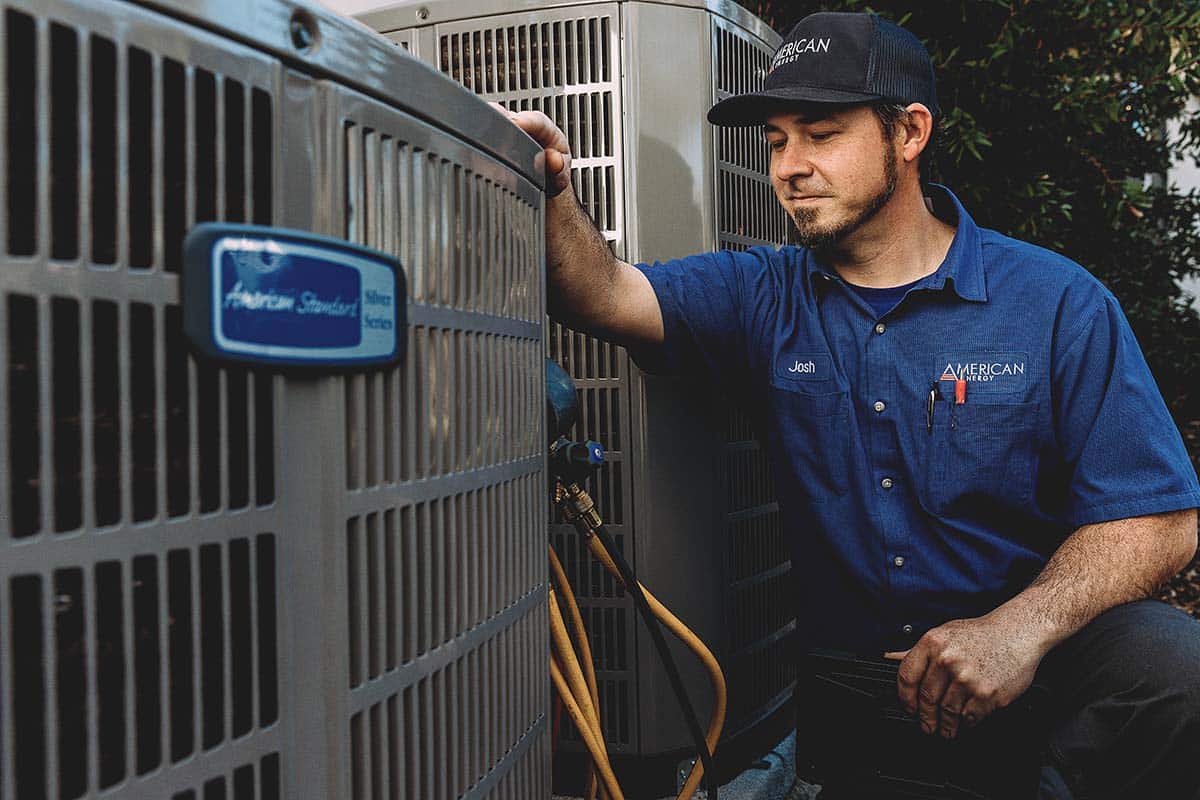
What Is The Average AC Repair Cost?
Air conditioning systems are a crucial aspect of maintaining comfort in our homes, especially during those hot summer months. However, like any mechanical system, they can experience issues that require repair. Understanding these repairs—along with their costs and American Energy Heat & Air common problems—can make a world of difference for homeowners. In this article, we’ll delve into the intricacies of air conditioning repair, exploring everything from typical issues to the often-misunderstood $5000 rule.
Understanding Air Conditioning Repair
When discussing air conditioning repair, it’s important to grasp what goes into the maintenance and fixing of these systems.
What is Air Conditioning Repair?
At its core, air conditioning repair encompasses any service performed on an AC unit to restore its functionality. This could range from simple tasks like replacing filters to more complex repairs involving refrigerant leaks or compressor failures.
Why is Timely Repair Important?
Ignoring AC issues can lead to larger problems down the line. For instance, a small refrigerant leak might seem trivial but could eventually result in complete system failure if not addressed promptly.

Common Signs Your AC Needs Repair
Exploring Common Air Conditioning Issues
To navigate AC repairs effectively, homeowners should familiarize themselves with common issues that arise.
Refrigerant Leaks
What Causes Refrigerant Leaks?
Refrigerant leaks can occur due to wear and tear on the system’s coils or connections. Over time, vibrations can loosen fittings or create tiny cracks.
How Do I Identify a Refrigerant Leak?
If you notice ice buildup on the evaporator coils or hear a hissing sound, you may have a refrigerant leak. Additionally, if your air conditioner is blowing warm air instead of cool air, it's another sign.
Electrical Failures
Common Electrical Issues in AC Units
Electrical components such as capacitors and contactors can fail over time due to age or power surges.
Signs of Electrical Problems
Look for signs like flickering lights when the AC turns on or unresponsive thermostat controls.
Drainage Problems
Why is Drainage Important?
Proper drainage is essential for maintaining humidity levels in your home and preventing water damage.
Identifying Drainage Issues
If you discover water pooling around your unit or notice mold growth nearby, you may have a clogged drain line.
The Costs Associated with Air Conditioning Repairs
Understanding costs is vital for budgeting purposes when navigating AC repairs.
Average Cost of Common Repairs
| Type of Repair | Average Cost Range | |----------------------------|------------------------| | Refrigerant Leak Repair | $200 - $600 | | Electrical Component Fix | $150 - $400 | | Drain Line Cleaning | $75 - $250 | | Compressor Replacement | $1200 - $2000 |
This table provides a general idea of what each type of repair might cost based on national averages; however, local rates may vary significantly.

Factors Affecting Repair Costs
The Essential $5000 Rule Explained
One critical factor homeowners must consider while navigating AC repairs is the infamous "$5000 rule."
What is the $5000 Rule?
The "$5000 rule" suggests that if repair costs exceed 50% of a new system's price (typically around $10,000), it might be wiser financially to replace rather than repair.
When Should You Consider Replacement?
- If you're facing multiple costly repairs within a short period.
- When your unit frequently breaks down despite recent fixes.
- If your energy bills consistently rise due to inefficiency.
Navigating AC Repairs: Insights into Preventative Maintenance
Preventative maintenance is key when it comes to avoiding unexpected breakdowns and costly repairs.
Regular Filter Replacement
Changing filters regularly helps maintain airflow efficiency and prolongs system life by preventing dust build-up.
How Often Should Filters Be Changed?
Most experts recommend changing standard filters every 1-3 months depending on usage and filter type.

Annual Tune-Ups by Professionals
Scheduling annual professional inspections ensures that minor problems are caught before they snowball into major expenses later on.
What Happens During a Tune-Up?
During a tune-up service:
- The technician will check all electrical connections.
- Clean coils will improve heat exchange efficiency.
- Verify refrigerant levels ensure optimal performance.
DIY vs Professional Air Conditioning Repair: Making the Right Choice
Many homeowners wonder whether they should attempt DIY fixes or call in professionals for air conditioning repair.
Pros and Cons of DIY Repairs
Pros:
- Can save labor costs.
- Immediate action if you're handy with tools.
Cons:
- Risk of further damage if not done correctly.
- Potential safety hazards from electrical work or refrigerants.
Frequently Asked Questions About Air Conditioning Repairs
- Most units last around 12-15 years with proper maintenance but could fail sooner without care.
- It depends; if repair costs exceed 50% of replacement cost (around $5k), consider buying new!
- No! Operating an AC without refrigerant can damage the compressor beyond repair!
- Inconsistent temperatures or unresponsive controls are good indicators!
- Yes! Regular maintenance improves efficiency and prevents costly emergencies down the road!
- It's usually not necessary unless advised by professionals during severe storms; just ensure it's well-maintained!
Conclusion
Navigating air conditioning repairs doesn’t need to be overwhelming when equipped with knowledge about common issues and associated costs—especially understanding the essential "$5000 rule." Regular maintenance plays a pivotal role in extending your unit's lifespan while ensuring efficient operation throughout its life cycle.
By staying informed about potential problems and seeking timely professional help when necessary, you’ll not only foster comfort at home but also safeguard against unforeseen expenses down the line! So remember: keep cool heads while navigating those tricky repairs!